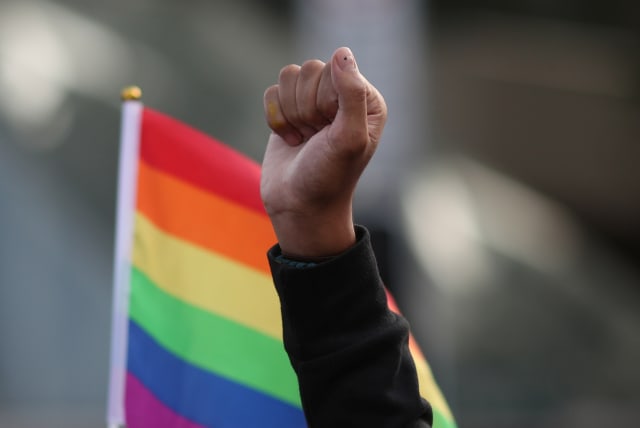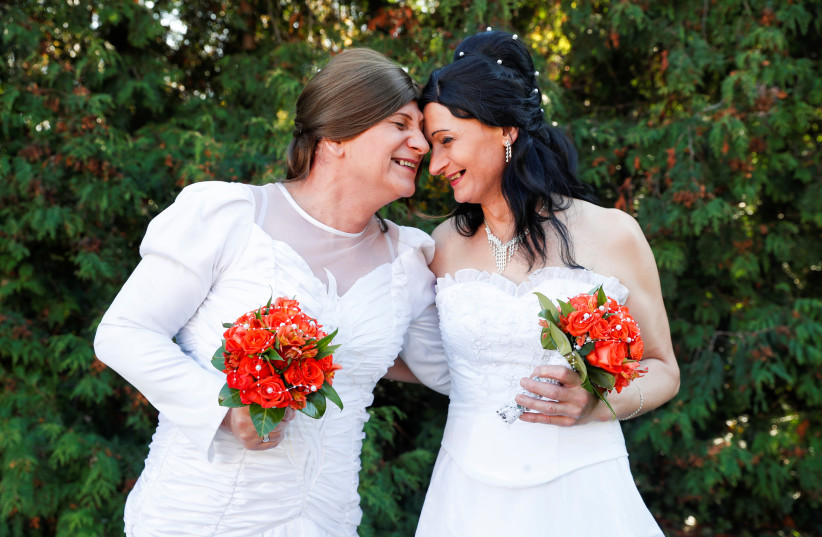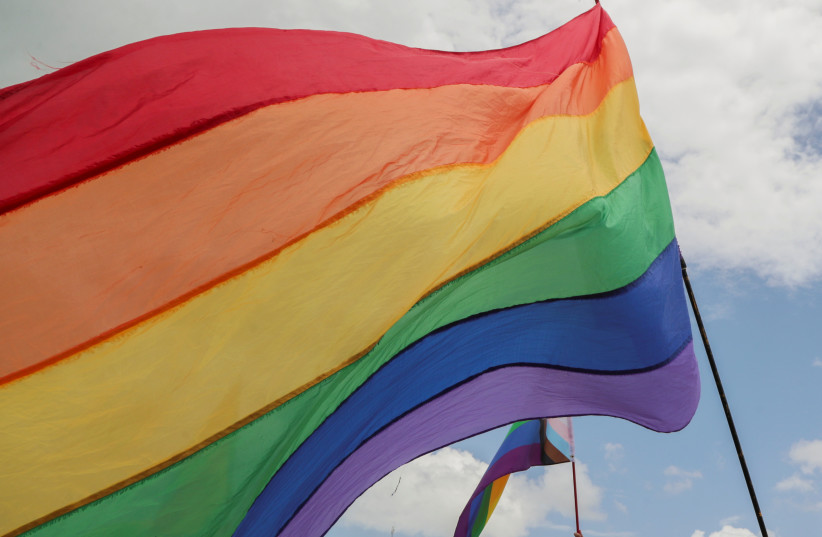LGBTQ+ families are as healthy or healthier than heteronormative ones -study

An analysis found that parental sexual orientation is not an important determinant of childhood development.
Families in which the parents are part of the LGBTQ+ community are as successful or more so than families with heterosexual cis parents, according to a new data analysis.
The peer-reviewed analysis, published on Tuesday in the journal BMJ Global Health, demonstrated that parental sexual orientation is not an important determinant of childhood development.
"The number of children in sexual minority parent families has increased," the study noted. "This systematic review aims to synthesize the evidence of disparities in family outcomes between sexual minority and heterosexual families and to identify specific social risk factors of poor family outcomes."
The number of children in families with LGBTQ+ parents has increased recently. However, though public opinion has changed, sexual minority parenting is still controversial and it is still a matter of debate whether parental sexual orientation affects family outcomes, according to the researchers who conducted the analysis.
The researchers studied 34 studies published between January 1989 and April 2022 and conducted in countries where same-sex relationships were legal in order to determine if there were differences in outcomes between sexual minority and heterosexual parent families.
The studies were classified into 11 subjects: Children’s psychological adjustment, physical health, gender role behavior, gender identity/sexual orientation and educational attainment; parents’ mental health and parenting stress; and parent–child relationships, couple relationship satisfaction, family functioning and social support.
The researchers conducted a pooled data analysis of the results of 16 of the 34 studies and found that most family outcomes were similar between sexual minority and heterosexual families.
Some areas, such as child psychological adjustment - especially in pre-schoolers - and child-parent relationships were, in fact, better in sexual minority families than in heterosexual families.
"Growing up with sexual minority parents may confer some advantages to children," the study noted. "They have been described as more tolerant of diversity and more nurturing towards younger children than children of heterosexual parents."
However, the analysis found that sexual minority parents did not perform better in the areas of couple relationship satisfaction, parenting stress, family functioning or mental health than families with heterosexual parents.
Social climate, environment may be linked to children’s psychological adjustment
Some factors that contributed to poorer outcomes for sexual minority families were experiencing discrimination, lack of social support and cohabiting instead of married parents.
“Social climate and environment may be related to children’s psychological adjustment,” the study noted. “Figure 3 suggested that there was a decreasing trend in the difference between children of sexual minority parents and children of heterosexual parents in children’s psychological adjustment over time, which may be due to an increasingly inclusive social environment and greater public awareness of sexual minorities.”
“Homophobic stigmatization and perceived stigma were related to more psychological problems,” the study added. “Subgroup analysis by country and region showed that sexual minority parents reported significantly fewer psychological problems than heterosexual parents in Europe, especially in the Netherlands. Indeed, the Netherlands was the first country in the world to legalize same-sex marriage.”
“Legal marriage confers a host of protections and advantages to the couples who marry and to their children,” the researchers said.
The study also demonstrated that children who lived in sexual minority parent families were less likely to expect to identify as heterosexual when they grew up than children who lived in sexual minority parent families.
“There may be less gender stereotyping in minority parent families, and this effect may be positive,” the authors said. “Exploration of gender identity and sexuality may actually enhance children’s ability to succeed and thrive in a range of contexts.”
The researchers noted that their analysis was limited to regions where same-sex relationships were legalized and where there is a favorable social climate toward these families. Furthermore, most of the participants were from gay and lesbian households and the researchers were not able to account for certain demographic factors.
Parental sexual orientation not a sole determinant of childhood development, researchers conclude
“One contribution of this review is the recognition that parents’ sexual orientation is not, in and of itself, an important determinant of children’s development,” they said. “Another…is that there are significant risk factors often associated with the sexual minority experience and family functioning, such as stigma, poor social support and parenting styles.”
“Policy-makers, practitioners, and the public must work together to improve family outcomes, regardless of sexual orientation,” the authors added.
Jerusalem Post Store
`; document.getElementById("linkPremium").innerHTML = cont; var divWithLink = document.getElementById("premium-link"); if (divWithLink !== null && divWithLink !== 'undefined') { divWithLink.style.border = "solid 1px #cb0f3e"; divWithLink.style.textAlign = "center"; divWithLink.style.marginBottom = "15px"; divWithLink.style.marginTop = "15px"; divWithLink.style.width = "100%"; divWithLink.style.backgroundColor = "#122952"; divWithLink.style.color = "#ffffff"; divWithLink.style.lineHeight = "1.5"; } } (function (v, i) { });


